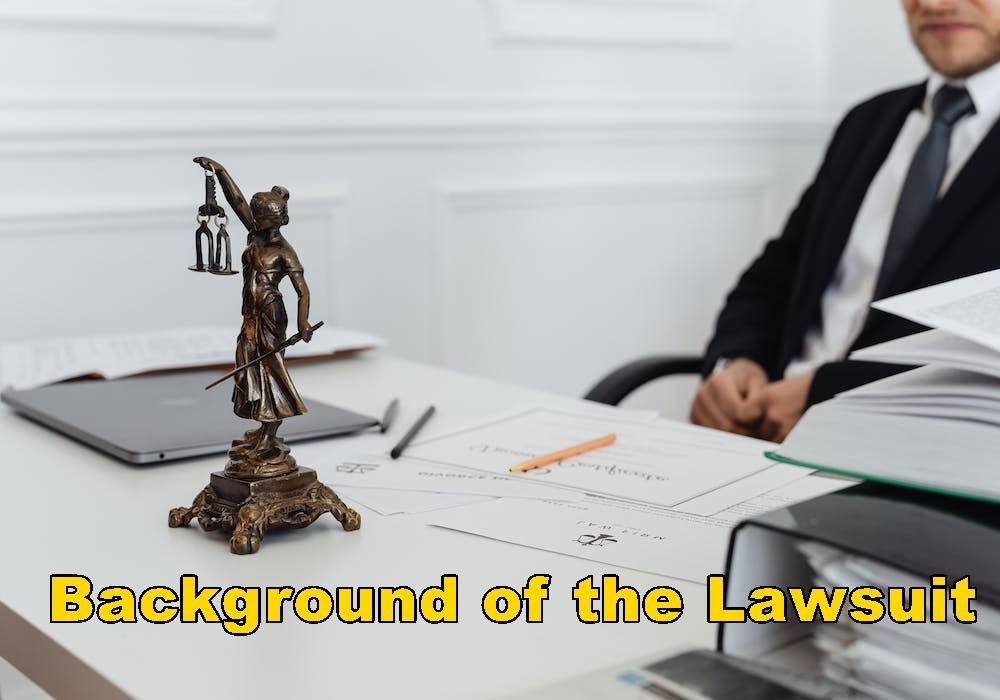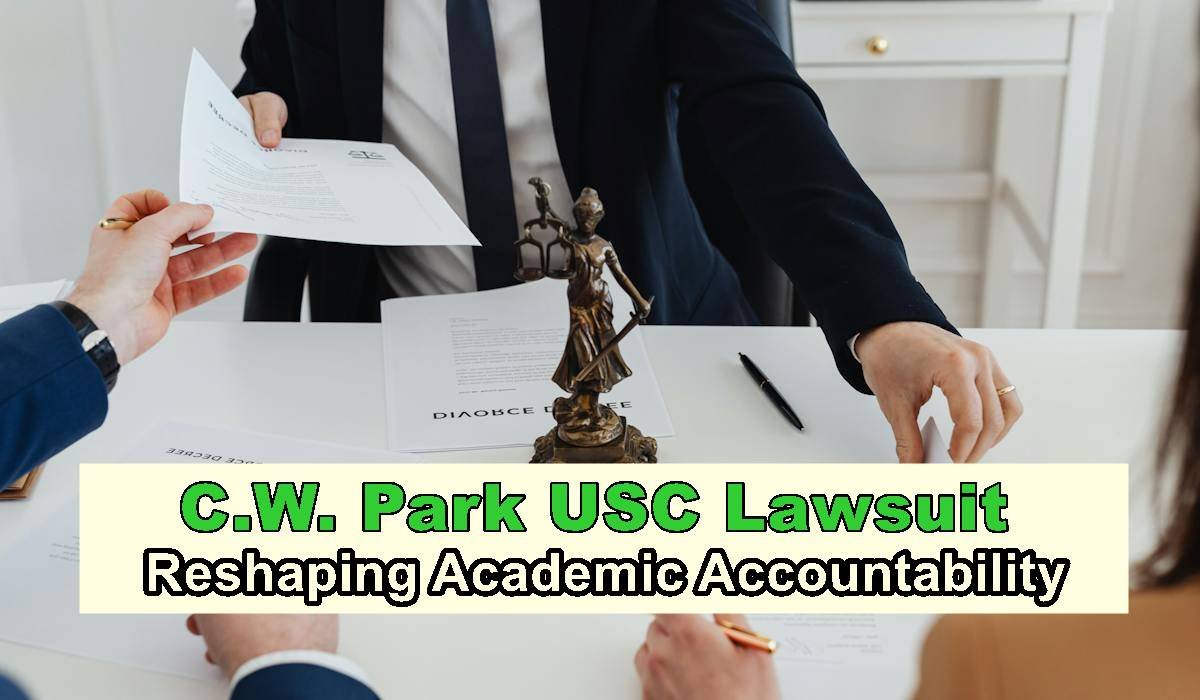The recent c.w. park usc lawsuit has stirred controversy and debate within the campus community, gaining attention in the news. Dr. Chan-Wook Park, a former professor at the University of Southern California (USC), initiated the lawsuit, alleging discrimination and retaliation by the university.
Dr. Park’s Career at USC
Dr. Park’s journey at USC began in 2002 as an associate professor in the School of Cinematic Arts (SCA). Over the years, he ascended to the position of full professor in 2014, receiving accolades for his contributions as a filmmaker and educator.
In 2016, Dr. Park faced an abrupt dismissal from his role as chair of the film production division at SCA, despite years of success and positive assessments. This unexpected decision prompted Dr. Park to file a complaint with USC’s Office of Equity and Diversity (OED), alleging discrimination based on his race and nationality.
OED Investigation
Following Dr. Park’s complaint, OED released a report acknowledging concerns about diversity and inclusion in SCA. However, it did not find explicit evidence supporting Dr. Park’s claims of targeted discrimination against him.
READMORE: Business Insurance Levantam: Protect Your Company from Risks
Background of the Lawsuit

The c.w. park usc lawsuit has garnered attention due to its history and details. Exploring the roots and essential developments of the case is crucial to understanding its context.
Sexual Harassment Allegations
The controversy began in 2017 when seven female students accused Dr. Park of sexual harassment and revenge, spanning from 2006 to 2015. These allegations included unconstitutional behavior, such as explicit comments and threats, leading to claims of retaliation against students who refused Dr. Park’s advances.
Despite these accusations, USC retained Dr. Park until his retirement in 2018, sparking discontent among students and faculty. In response to public outcry, USC launched a Title IX investigation. Before disciplinary actions could occur, Dr. Park sued USC for defamation in July 2018, alleging damage to his reputation.
Who is C.W. Park?
Academic Journey
It also known as Chun Woong Park, filed a racial discrimination and harassment lawsuit against USC in 2018. Born and raised in South Korea, Park immigrated to the United States for higher education.
Park’s academic journey started at a community college, followed by a transfer to USC, where he earned an undergraduate degree in electrical engineering. Despite his achievements, Park claimed constant discrimination based on race and harassment, leading to his decision to pursue legal action against USC.
Park’s Role at USC
Academic and Administrative Contributions
As a professor in the marketing area, C.W. Park joined USC in 1996. His responsibilities included teaching undergraduate and graduate-level classes and holding various administrative positions, such as Faculty Director of the Masters of Science in Marketing Program.
Park significantly contributed to research activities at USC, conducting studies on consumer behavior and marketing strategies. His work garnered recognition with over 10,000 citations globally, enhancing USC’s reputation in marketing research.
Allegations Against USC in Connection with C.W. Park
Recent allegations against USC and Dr. C.W. Park have raised questions about discrimination and unequal treatment at the university, particularly within the School of Cinematic Arts.
Dr. Elizabeth Daley’s Lawsuit
Dr. Elizabeth Daley, former director of USC School of Cinematic Arts, filed a lawsuit against USC and Dr. C.W. Park. The primary claim suggests USC engaged in discriminatory practices related to hiring and promoting faculty members. Dr. Daley alleged removal from her post as dean for diversification efforts, encountering resistance from senior faculty.
Testimonials Supporting Dr. Daley’s Claims
Testimonials from current and former female faculty members at USC’s School of Cinematic Arts support Dr. Daley’s claims. These testimonials highlight instances of women being excluded from leading roles or mistreated by male colleagues.
Impact of the Lawsuit on USC and its Students
The C.W. Park lawsuit against USC has far-reaching implications, affecting the university’s reputation, finances, and the student experience.
Public Perception and Financial Implications
The lawsuit has tarnished USC’s public image, raising concerns about the university’s handling of complaints and its stance on sexual harassment. Financially, the high-profile nature of the lawsuit may deter potential sponsors or donors, impacting USC’s revenue sources and potentially leading to financial losses.
Indirect Impact on Students
Changes implemented by USC in response to the lawsuit could indirectly impact students. New rules and policies, stemming from allegations against Dr. Park and others, may include stricter regulations for faculty-student interactions and more effective reporting procedures for instances of sexual misconduct.
Reaction by USC in Response to C.W. Park and USC C.W. Park
USC’s Response
In response to the lawsuit filed by former doctoral student Sarah Blout, USC issued a statement denying the allegations. The university emphasized its commitment to a safe environment and expressed confidence in its handling of the matter.
Dr. C.W. Park’s Apology
Dr. C.W. Park released an apology, denying the allegations in the lawsuit. While acknowledging potential differences of opinion, Dr. Park insisted on maintaining professionalism and high academic standards in interactions with students.
Legal Perspective: Analysis of the Lawsuit and Possible Outcomes
Background of the Lawsuit
C.W. Park’s lawsuit against USC, filed in May, focuses on claims of victimization and sexual harassment during her undergraduate years. The lawsuit names top administrators, including former dean James Ellis, former Provost Michael Quick, President Carol Folt, and current dean Geoffrey Garrett.
Analysis
Several significant legal issues in the lawsuit warrant investigation. The primary focus is on allegations of sexual harassment, requiring universities to safeguard students from gender-based discrimination and harassment, according to Title IX.
Lessons Learned from This Case
Importance of Accountability and Transparency
This case emphasizes the critical need for institutions to ensure transparency and accountability, particularly in addressing instances of misconduct or discrimination. Establishing clear guidelines and policies for reporting and responding to such cases is essential to prevent systemic failings.
Impact of Power Dynamics
The underscores the influence of power dynamics in environments where harassment occurs, making it difficult for victims to speak out. Institutions must examine their structures to rectify power imbalances and create safer environments.
Necessity of Speaking Out
The case highlights the significance of vocalizing instances of mistreatment or harassment, as it can lead to significant changes. Speaking out requires courage, but it can bring about positive outcomes, as seen when multiple individuals shared similar experiences.
Conclusion
The c.w. park usc lawsuit illuminates critical issues of discrimination, harassment, and institutional shortcomings at the University of Southern California (USC). Dr. Park’s legal battle and the allegations from Dr. Daley underscore the urgent need for transparency, accountability, and a reevaluation of power dynamics within academic settings.
This case emphasizes the importance of clear policies to address misconduct and discrimination, highlighting systemic failings that demand attention. The experiences shared in the lawsuit underscore the necessity of rectifying power imbalances to create safer and more inclusive academic environments.
The collective voice of those who spoke out demonstrates the power of shared experiences in driving accountability and positive change. As USC responds to the aftermath of this lawsuit, it faces scrutiny regarding its commitment to inclusivity, diversity, and ensuring a safe environment for all. The lessons learned from the C.W. Park USC lawsuit should serve as a catalyst for proactive measures to address discrimination and harassment, fostering a culture of fairness, openness, and respect within educational institutions.
